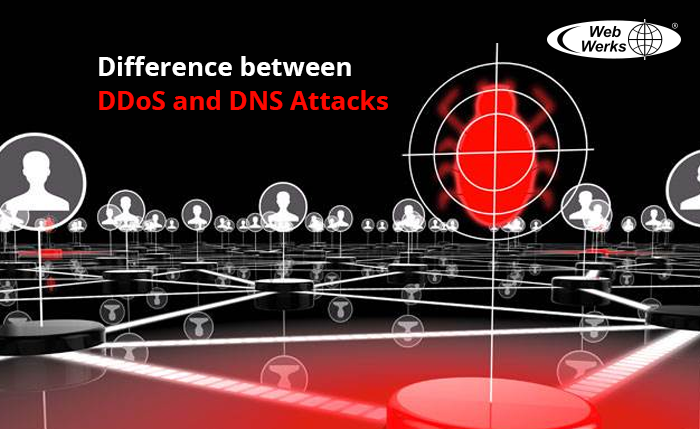Denial of Service (DOS) and Distributed Denial Of Service (DDOS) assaults are the tools utilized by hackers to disturb online services. The ramifications of these attacks can be wild – in some cases costing big organizations a big loss. In case you maintain a business that is conceivably an objective for one of these assaults, or in case you're simply inspired by the subject, read on for approaches to guard yourself against these sorts of attacks.
Though DoS and DDoS sound quite similar there are in fact differences between the two
- DoS A DoS Attack is a Denial of Service attack. This implies when one computer and one web connection is utilized to surge a server with packets (TCP/UDP). The purpose of such a denial of service attack is to over-burden the targetted server data transmission and other assets. This will make the server difficult to reach to others, in this way blocking the site or whatever else is hosted there.
- DDoS A DDoS Attack is a Distributed Denial of Service Attack. In many regards, it is like a DoS attack however the outcomes are a whole lot different. Rather than one computer and one web connection, the DDoS assault uses numerous computers and numerous connection. The computers behind such an assault are frequently distributed globally and will be a piece of what is known as a botnet. The fundamental contrast between a DDoS assault versus a DoS assault, henceforth, is the target server will be over-burden by hundreds or more number of request in the case of the former instead of only one attacker in the case of the latter. Accordingly, it is a whole lot harder for a server to withstand a DDoS assault instead of the less difficult DoS invasion.
- For what reason would they attack me? There can be multiple reasons for such kinds of attacks. It could be the case that partnership is at war and pursuing it on the web. Or it could be that somebody wants to harm you so that he/she can revenge back. Or on the other hand, it could be organized by hackers. Additionally called "hacktivists". The culprits who just want to coerced cash from organizations. I will call them internet mafia.
- Who is in danger? Everybody. Nobody is safe from a DOS or DDOS attack. In 2010, EA, Twitter and the PlayStation Network (among others) felt the brunt of a nationwide DDOS attack. Millions were lost. Additionally, with organizations as large as these being targeted, what trust do the little fish have? It's ideal, at that point, to know how to stop one of these assaults should they come to your direction…
How would I secure myself?
- Securing against DOS attacks is quite simple. Victims can obstruct the attacker’s IP address at firewall or ISP level, contingent upon the seriousness of the attack.
- Security tools and endeavor items exist which can block ICMP or SYN attacks.
- DDOS assaults are far harder to guard against, and there are different techniques. One of these includes having the ISP junk all incoming traffic to the web server, legitimate or not. This can help spare and secure your customer's personal data.
- Different routes are to utilize SYN cookies or HTTP reverse proxies, contingent upon the sort of attack. DDOS attacks happen almost every day. In case you have resources on the web and dread a DDOS attack, the best thing you can do it contact a web-security expert. They might be expensive, and the software you need could be considerably more costly, yet you never know when you may require security.

